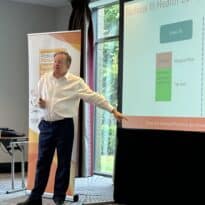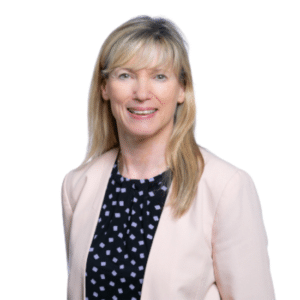In a new series in association with Fund Calibre, we’re bringing you soundbites from interviews with fund managers which can be found on the Fund Calibre website.
We start with Gillian Hepburn, head of Intermediary Solutions at Schroders, who talks about the 60% of UK wealth that will be in the hands of women by 2025, and the challenges and opportunities this presents for financial planning.
If 60% of all the wealth in the UK will be in female hands by 2025, where’s all this money coming from?
“I’ve talked a lot about wealth transfer over the years and talked about moving to the next generation, but the first point of wealth transfer is often a husband to a wife, and that gives us some really interesting challenges to think about.”
So, what do these women need to be thinking about?
“I would always say, first of all, get some advice. What is interesting here though is that often the couple will [already] have an adviser, but 70% of women will actually change that adviser.
“We did some research and it’s often because these women felt that they were unheard. They were scared to ask basic questions and, as a result, they just sat back in the conversation. And, over the years, the adviser just let that happen. So, many women feel that they lack confidence when it comes to what could be potentially large sums of money. And equally, although we’re typically talking here about widows, it’s very much the same for women who go through a divorce.
“So, the first thing I’d always say is, just try to get some advice. And prior to these events happening, take part in the conversation. Know and understand where the money is within the family [and] what are the plans for passing that on? Where is it held? And who are the gatekeepers? So, do we know who the advisers are? Do we know the solicitors or accountants depending on the level of wealth that’s there? Get involved.
“And then the next stage obviously is just thinking about “what will I do with this?” And I always talk about investing rather than saving. Now, clearly cash interest rates have been a real challenge over the last few years and they’re rising a bit, but we’ve still got inflation sitting there.
So, it’s about understanding the interplay between cash savings and inflation and starting to think then about investing and what that would that look like and where to start. And that can often involve family conversations. Because interestingly, what we find – if we think about widows again – it’s often the wider family that steps in and helps out, at the time where a female could be at her most vulnerable.
“And interestingly as well, women often overestimate how much income they will need to survive on or how much money they will need. So, again, it’s back to understanding – particularly again for widows – what your future life might look like. A really good example is [that] women outnumber men in care homes by three to one. And when they get there, they’re there four times as long. We live longer and in poor health. Clearly there are very specific advice requirements for women, or considerations that women need to have.
What about younger women?
“I took part in an event a number of years ago, amid a room full of very engaged young women who wanted a safe environment to talk about their money. And we asked a simple question: how many of you are investing in the stock market? And I think about six hands went up. And then we asked, how many of you have a workplace pension? And all the hands went up and we said, well actually you’re all investing in the stock market. So, it’s about education, isn’t it? And there’s loads of different ways that you can do that. There’s lots of available resources. There’s Boring Money [boringmoney.com], for example. They’ve got a site specifically for women in their forties, fifties, and sixties. But there’s also lots of podcasts, Vestpod [vestpod.com]’s another one that does really good basic, financial education. So, there’s lots of places to go.
“And I think it’s about sitting back and understanding that women, particularly young women, do have a challenge; typically earning less, living longer, taking gaps for maternity, or caring for parents in their elderly years and for young children. So, women do have a gap in terms of their savings. And it’s thinking about what the impact of that is and how you can try to compensate for it.
“Another area [that] we found [where] women get extremely engaged, is in sustainability. Women typically want to invest more sustainably than men. And sustainability, if you think about it, plays into a number of different areas which are really meaningful, particularly for women. So, things like addressing modern slavery or women on boards or microfinance. And I think some of these stories about where your money can do good are really interesting, but also very appealing often to women.”
Listen to the full interview here.
[Main image: pawel-czerwinski-eybM9n4yrpE-unsplash]



























